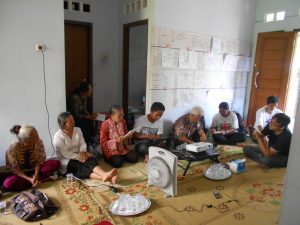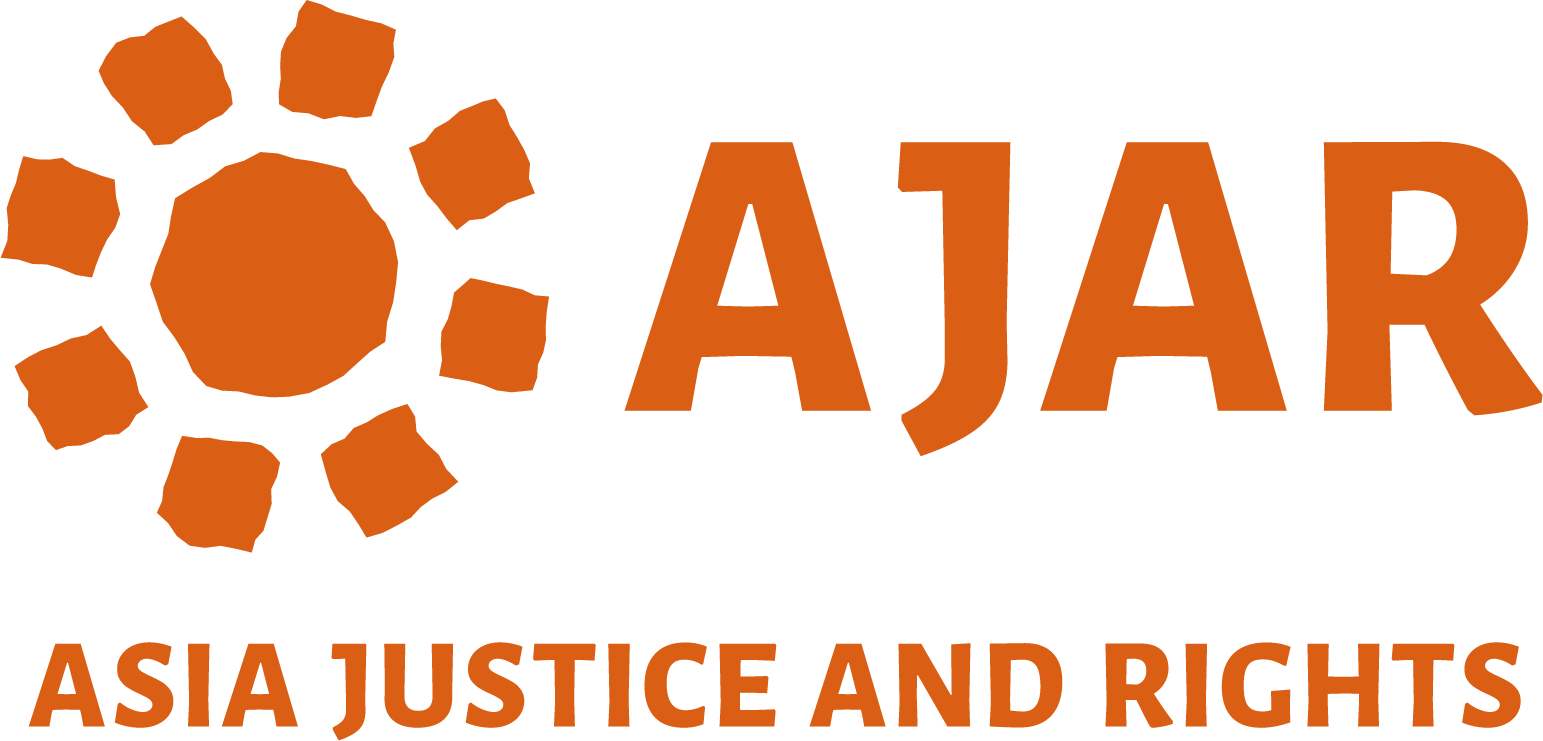Story of KADMIYATI 
Kadmiyati was a teacher whose life was derailed by the violence of 1965. She was studying at the Taman Siswa Teacher’s College in Mergangsan and was about to start her teaching practice. She enjoyed the cultural activities organised by Lekra (Institute of People’s Culture), and taught children at a kindergarten organised by Gerwani which was associated with the Communist Party of Indonesia (PKI).
On October 10, 1965, Kadmi and ten neighbors were taken from their homes to the village office. They were then moved to the subdistrict office, and finally to a camp in Bantul. Detained there for more than a year, they never had enough to eat, just some cabbage leaves and dried cassava. Her father and older brother were also arrested and held in the Wirogunan Prison in Yogyakarta.
Kadmi was released in 1966. With her father still in prison, she had to help her mother raise her seven younger brothers and sisters, the youngest only born in 1966. Without her father’s income they faced great economic hardship. When they were arrested their house had been ransacked:
Everything that we had was stolen by those who ransacked our house. They took everything they wanted, including a keris [a traditional dagger] with a golden sheath. They also took our money and a gamelan set.
In 1967 she was called again to Camp Bantul, this time she was tortured by the camp commander:
The people interrogating me were from the prosecutor’s office and the district military post. We were stripped naked, and … you know what I mean. I am too ashamed to speak about it. What happened was the same as what other women prisoners experienced. …They did that only to fulfil their desires. We could only pray… “Oh God, why are they like that? Please forgive them.
No one visited her, and when she was released she was isolated by her community. Kadmi became the breadwinner for her family. She left home every morning at three and walked ten kilometers to the market to sell grontol, a type of sweet corn meal. She remembers this time with sadness, but knew she had to do it for her family’s economic survival: It fell on my shoulders to pay for all the bills.
In 1972 Kadmiyati married and the couple worked hard to support their family. She made tepung ketan (sticky rice flour) and worked with her husband selling vegetables in the market. Life was difficult and they could never make enough money. She was also still helping her parents sell onions and chilies in the market. After a while, she was able to purchase a bicycle that she still uses 40 years later. Kadmi started sewing bags to supplement their income, while her husband began working in a bread shop. They had two daughters, and the family moved around for some years. Her bags began selling well and Kadmi was able to support her family as well as paying high school fees for her youngest sister.
Kadmiyati’s husband died a few years ago. She still leads a productive and active life, sewing and raising chickens and helping out with her grandchildren. She attends activities at her church, a ten-minute bicycle ride from her home.
Kadmiyati is 71 years old now. She lives in a small wooden house with two rooms. The front room is her workshop, where she sews bags, dresses, hats, and belts. It is filled to the brim with swaths of cloth, spools of thread, and her foot-powered sewing machine. The back room is dark and damp, with a small single bed, a table and shelves full of books. Kadmi often reads deep into the night by the light of a flickering bulb. Adjacent to her house is a modern concrete duplex, where her two daughters and grandchildren live. She dedicates her life to her children, putting aside her own needs, as she has all her life.
Kadmiyati is still haunted by what happened to her and her family “I am still worried because I am still monitored.” Asked to envision what justice may look like, she said, “A bit of justice would be if the government revealed the truth.” Asked to further explain, she reflected:
I also demand and hope for justice for the violence against the victims of 1965. For the sadistic torture and killing of millions of people and those detained up to 14 years. When will the law be upheld? … Who is sadistic and cruel? The communists? Or the perpetrators of the killings? Find out the truth.
Kadmiyati draws strength from family, sewing, friends at church, her faith, and involvement with KIPPER, a women’s organisation for survivors of 1965 based in Central Java. She said: Now I feel so much more powerful, and not so lonely anymore, because of the struggle that we must fight to dismantle violence, to get justice.
